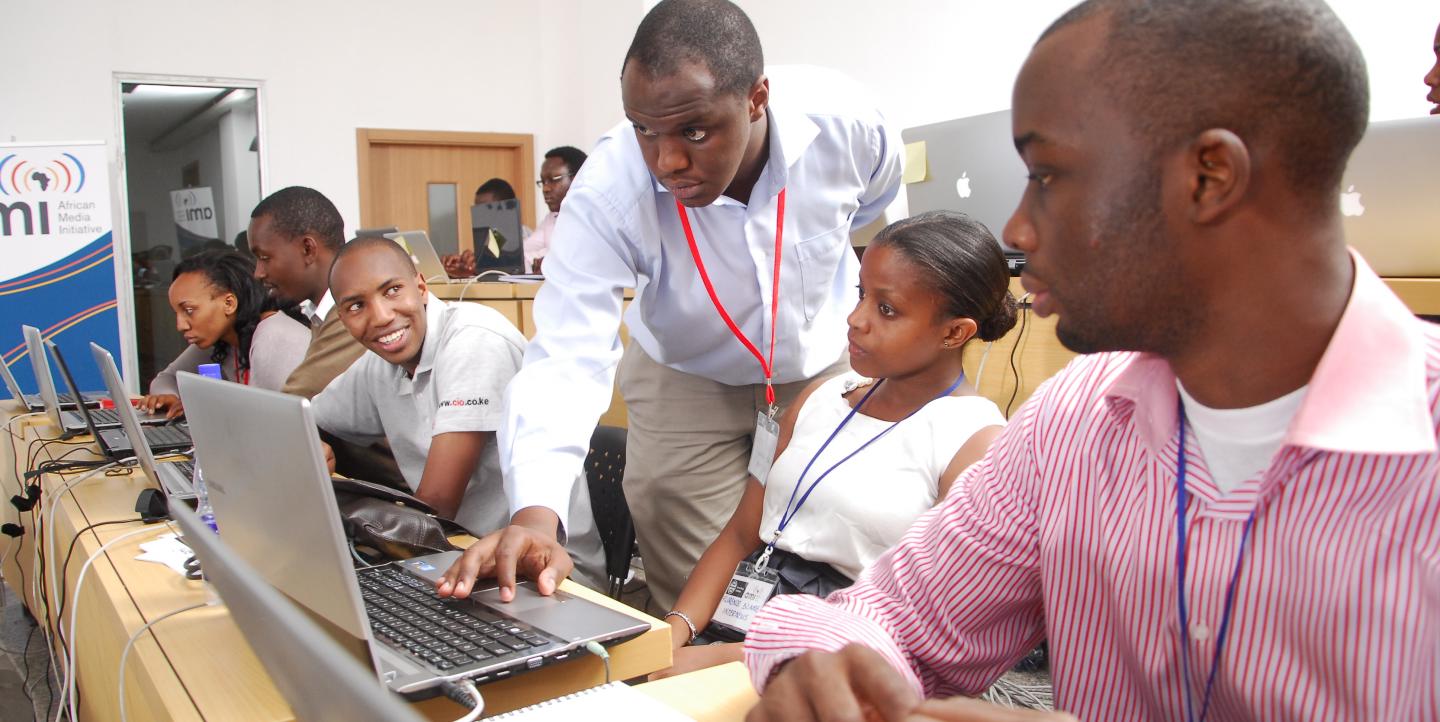For parents in Kenya, getting a full and detailed picture of how well their child's school performs is something new.
Students there take standardized exams at the end of primary and secondary school. The results are big news in the country, but the press coverage usually focuses on just a part of the story, such as which schools are top performers and how much they improved, said Muchiri Nyaggah, a developer and a fellow for Code4Kenya.
Now starting its second year, the Code4Kenya project embedded four developers in media and civil society organizations to work toward making open data available to the public.
Nyaggah was embedded with Twaweza, a civil society organization that aims to bring lasting change to East Africa. Twaweza, whose name means “we can make it happen” in Swahili, wanted to make public information such as school performance data easily available to citizens.
How? By creating an app called Find My School. Still in beta, this application allows users to search for schools by location, name and exam scores. “If the performance [of a school] has been declining, it gives you a report card that you can actually walk into the next PTA meeting with and ask questions,” Nyaggah said. “The tool empowers parents to be actively involved in the running of the school.”
The team faced a few roadblocks on the way to launching the app. Although part of the data was available in the new Kenya Open Data portal, the team realized it needed the original data set for this project. They asked for help from other organizations, which shared data they had already obtained. This allowed Find My School to launch with two years of data for primary schools.
After submitting a public information request and waiting months for government bureaucrats to release it, the team recently obtained the whole data set. That means the next iteration of the app will include seven years of data for primary and secondary schools.
Nyaggah was delighted to see the reaction of the first parents to use the app. “They didn’t think the information was available, so they were pretty surprised,” he said.
The Code4Kenya program, which is managed by the Open Institute and funded by the World Bank and the African Media Initiative, will run for the coming year. Nyaggah will also help bring it to other African countries by serving as lead fellow for Code4Africa.
Although Kenya is experiencing a tech boom and the Kenyan government has taken steps toward greater transparency, such as launching the Kenya Open Data Initiative, Nyaggah says there’s still a lot to be done before citizens have access to the information they need.
The government has been proactively releasing data to the public, but as Nyaggah found, it is sometimes in a format or with licensing that makes it difficult to repurpose, reuse and redistribute.
But to detractors who think the open data initiative in Kenya has failed, Nyaggah says it's still in the early stages.
“The lessons that are being learned in the Kenyan context are going to be invaluable to other African countries,” he said.
Check out Code4Kenya and the work of its other fellows here.
Maite Fernández is IJNet’s Managing Editor. She's bilingual in English and Spanish and has an M.J. in multimedia journalism from the University of Maryland.
Photo: Data bootcamp held in Nairobi, courtesy of the African Media Initiative.

